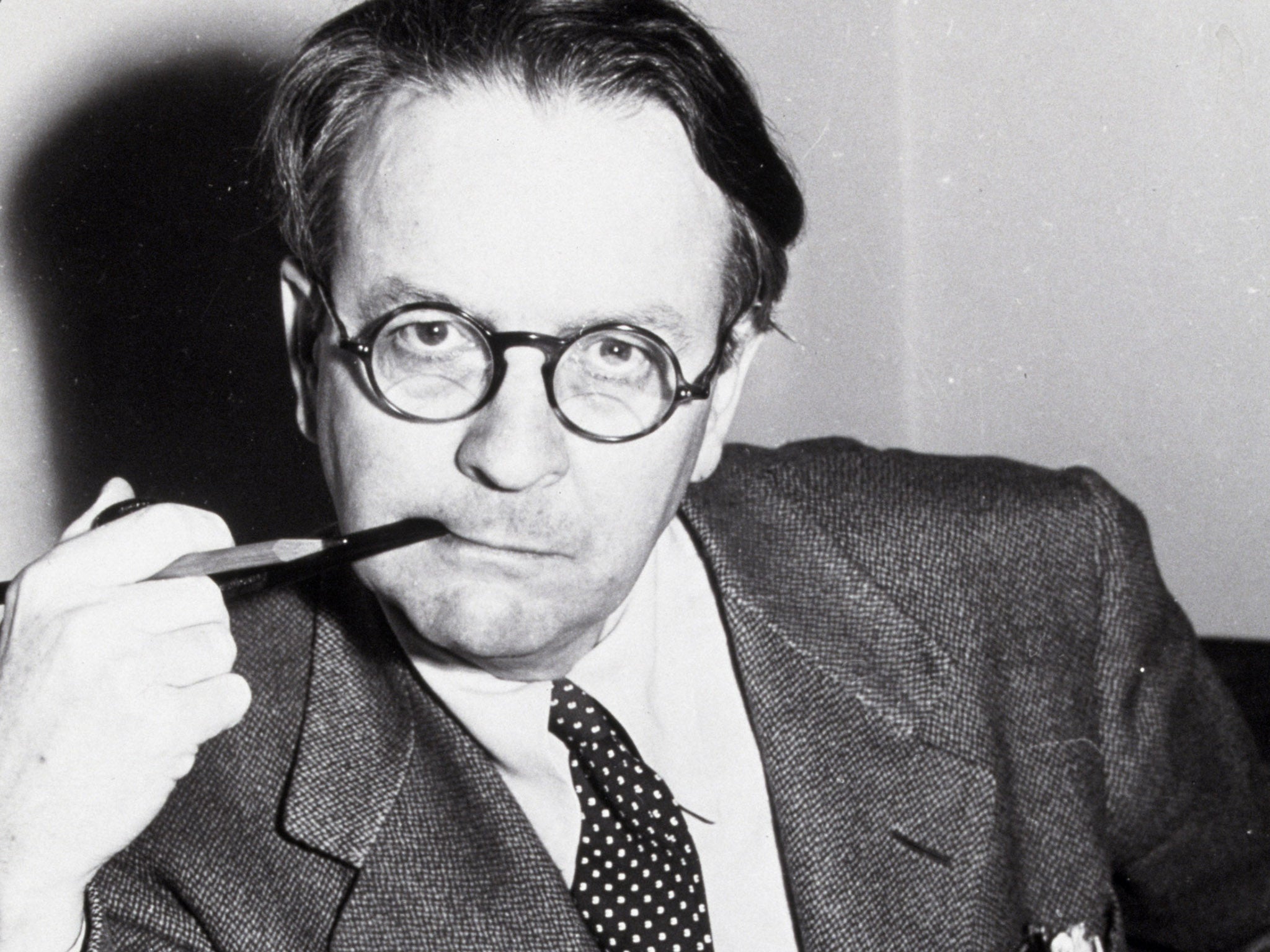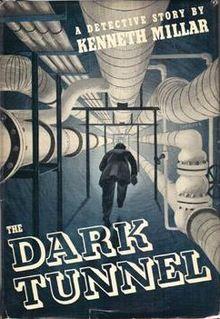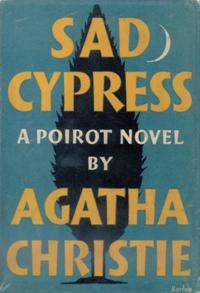The KoKo collection of detective novels proves that crime does pay
A rare and unusual collection of historically important crime novels goes under the hammer in September, proving for once that crime does pay. David Barnett is the gumshoe on the case

Your support helps us to tell the story
From reproductive rights to climate change to Big Tech, The Independent is on the ground when the story is developing. Whether it's investigating the financials of Elon Musk's pro-Trump PAC or producing our latest documentary, 'The A Word', which shines a light on the American women fighting for reproductive rights, we know how important it is to parse out the facts from the messaging.
At such a critical moment in US history, we need reporters on the ground. Your donation allows us to keep sending journalists to speak to both sides of the story.
The Independent is trusted by Americans across the entire political spectrum. And unlike many other quality news outlets, we choose not to lock Americans out of our reporting and analysis with paywalls. We believe quality journalism should be available to everyone, paid for by those who can afford it.
Your support makes all the difference.Guy like me, I was brought up to believe that crime doesn’t pay. I’ve seen enough to know that’s not true.
Take this nugget that I stumbled across. Big shipment of books coming in, crime books, every last one of ‘em. And the owners are planning to off-load them at some kind of, I dunno, underworld auction next month. Some names on this list that’ll make you sweat. Lemme toss you some.
Dashiell Hammett, former Pinkerton detective. Wrote a book in ’29, Red Harvest. These guys have a first edition that’s expected to bring $30,000. They’ve also got another Hammett job, The Maltese Falcon. Yeah, I thought that would make you sit up. Price tag? $20,000.

You want more? What about Edgar Allen Poe, strange guy from Boston. Heard he was mixed up in some job that ended with a guy being bricked into a wall. Alive. They got an 1845 first edition of his that’s likely to fetch $10,000. They’ve even got a Sherlock Holmes tied up in all this, The Sign of Four. Don’t expect any change from six grand.
And that’s not all, not by a long shot. There are nearly 75 items in this collection that’s going up for the highest bidders. Even a knucklehead like me knows that adds up to a lot of dough.
They call it the KoKo Collection, and it’s going under the hammer in Dallas on September 14, organised by some outfit called Heritage Auctions. They’ve got a guy there called James Gannon, calls himself Director of Rare Books. I decide to find out what he has to say for himself.
“The KoKo Collection will mark the auction debut of several historically important novels,” Gannon says. I reckon he’s choosing his words carefully. “A collection like this only comes along once in a lifetime and indeed required a lifetime to assemble.”
There’s going to be some high-rollers interested in this, you can bet your bottom dollar. People with a lot of money. People with muscle. It’s not going to be for the faint-hearted.
Question a guy like me wants to know is, who’s behind it? Gannon is keeping it well and truly buttoned after peddling the party line, but there had to be someone at this Heritage Auctions who’d squeal.
That someone was going to be Eric Bradley, I was pretty sure of it. Guy with a title like Director of Public Relations on his business card, he’s gotta be loose with his lips, right? So I go round and lean on him.
“It’s difficult to really tell the story behind this collection because the owner wishes to remain anonymous,” is Bradley’s opening gambit. What, he thinks I’m going to tip my hat to him and walk away with that? He doesn’t know who he’s dealing with.
So, come on, Bradley. Who’s behind this? Is it one guy? A cartel? Is it the Mob?
“It’s a joint effort between a husband and wife,” he says. He's talking at last. A little bit of friendly persuasion works wonders. Husband and wife team, though. Anyone I might know? They make the papers much?
“No.”
So why “KoKo Collection”? Is that a clue? Is that like one of those portmanteau names the starlets and wiseguys in LaLa Land use when they get hitched for six months?
“The consignors preferred anonymity,” says Bradley again. Yeah, yeah, give me something I don’t know. “So the collection was named after someone special to them.”

Curious. A bit of a code, then. A puzzle. KoKo. But what does it mean? Bradley’s not saying anymore, though, and suddenly I feel a bit of a chill. Last time I remember a job with a mystery word that nobody could figure out it was “Rosebud”, and suddenly I’m not sure if I want to dig any deeper into this.
Then I look at the list again. Fer-De-Lance by Rex Stout, 1934, first outing for Nero Wolfe. Don’t know if you know him, but the guy’s a genius. Solves impossible crimes. I’d say $8,000 was a nice lot of greenbacks for that. The Dark Tunnel by Kenneth Miller. They say Miller’s up there with Hammett and Raymond Chandler. Now there’s three guys I wouldn’t mess with in a dark alley. Then we’ve got The Conjure-Man Dies by Randolph Fisher. This Fisher, he’s the first African-American to get into the crime novel game, back in ’32. Says here this is an “inscribed copy”. I wonder if that means it holds some sort of clue?
I need someone who isn’t squeezed in the Heritage Auctions fist to open up. These guys obviously have a watertight operation; nobody’s going to be the one to spring a leak, and with bread like this on the table, I could see why.
Luckily, I know a guy. Party by the name of Martin Edwards. He hangs his hat in Cheshire, far as I remember, and where the subject of crime novels is concerned, he wrote the book on it. No, really, he wrote the book on it. It’s called The Story of Classic Crime in 100 Books, and it’s just been put out there by the British Library. You want to take a look at it sometime; he starts with The Hound of the Baskervilles and he finishes with Strangers on a Train. That’s a lot of secrets spilled. The guy’s either brave or a fool or both. Luckily for me, he also sings like a canary. So tell me, Edwards, what do you know about the KoKo Collection?
“I haven’t heard of it,” he says. I think he’s telling the truth. But Edwards does have the inside track on this whole crime book schtick. This KoKo job isn’t a one-off; there’s money to be made here. This thing is bigger than even I imagined, and when it comes to money, let me tell you, I got a big imagination.
“Collecting crime novels is big business,” says Edwards. “And it’s bigger at the moment than it’s been for a long time.”
So what’s driving it? In part, says Edwards, it’s the British Library itself. Not for the first time I wonder if I’m getting in over my head. This thing is bigger than anyone guessed. Seems the British Library has been putting out new editions of classic crime novels, some well known, others not so much. They’ve been an amazing success, so much so that it’s driving up interest in the original novels, some of them from as far back as the Thirties.
“Take John Bude as an example,” says Edwards. I didn’t know the name, but a bit of digging turned up he was the guy behind The Cornish Coast Murder, The Sussex Downs Murder, The Lake District Murder, Death on the Riviera… jeez, the guy’s not only prolific, he gets around. Edwards goes on: “Not so long ago not many people had heard of Bude, but the popularity of the books released by the British Library has brought him a new readership, and some of those are now looking for the originals, which has pushed the prices up. Some of them are incredibly expensive compared to what they were; a first edition of the Cornish Coast Murder will set you back four figures.”
Then Edwards starts talking about jackets. For a minute I think he means concrete overcoats, and I start thinking about the Mob again, but he means dust jackets. Apparently, you find a first edition of a crime book in nice condition with a dust jacket, your ship might be steaming in.
“A lot of people used to take the jackets off the books, sometimes even just cut them up,” says Edwards. “Even the British Library, which files copies of all books, used to remove the dust jackets first. Back in the Thirties and Forties, people didn’t really value them. So if you can find a book with one, that’s potentially going to be very valuable.”
So even an average joe like me could put together his own version of the KoKo Collection? Where am I going to find this stuff? Charity shops? “Only if you’re very lucky,” says Edwards. “I actually heard from someone that some charity shops only like contemporary paperbacks, and throw out any old hardbacks they get. That said, I did recently pick up a book for £2 that I could probably get £100 for.”
Not a bad investment. But I’m no closer to finding out who’s behind the KoKo Collection. Guess I’ll just have to wait until 14 September like everyone else, and see what sort of numbers these books rack up. Looks like this whole investigation has been a busted flush. But I do have one more ace up my sleeve. I remember the Randolph Fisher lot, the inscribed copy of The Conjure-Man Dies. I ask Edwards about it. What does inscribed mean? Is it a clue?
“That just means that it’s not just signed, there’s a message in it, something written by the author to whoever has asked for it to be signed. Signatures in books from the thirties or forties are not as common as they are with modern authors,” says Edwards.

Does he have any inscribed books? “I have a copy of Sad Cypress by Agatha Christie, from 1940,” he says. “This was at the beginning of the Second World War, and Christie wrote in the book, ‘Wars may come and wars may go, but murder goes on forever’.”
Which might not be any kind of clue at all, but it could well be a warning, so for this ol’ gumshoe, it seems a pretty good place to bow out of this investigation and let sleeping dogs lie.
The KoKo Collection will go under the hammer at Heritage Auctions’ Dallas event in September - details here
Join our commenting forum
Join thought-provoking conversations, follow other Independent readers and see their replies
Comments